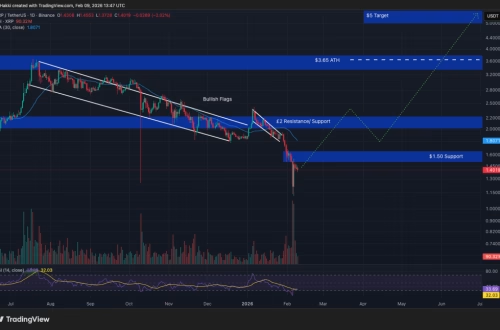how to avoid phishing emails crypto
Summary:
Phishing emails in the crypto space are fraudulent attempts to steal sensitive information like private keys or login credentials by impersonating legitimate entities. This article explores how to identify and avoid these scams, ensuring your digital assets remain secure. Novices in the AI and crypto industries are particularly vulnerable, making awareness crucial. By understanding common tactics, verifying sender authenticity, and using security tools, users can protect themselves from financial losses.
What This Means for You:
- Increased Security Awareness: Recognizing phishing attempts reduces the risk of falling victim to scams. Always double-check email senders and avoid clicking suspicious links.
- Actionable Email Verification: Use tools like email header analyzers to confirm legitimacy. Enable two-factor authentication (2FA) for an added layer of security.
- Proactive Measures: Bookmark trusted crypto platforms instead of clicking email links. Report phishing attempts to relevant authorities to help combat fraud.
- Future Outlook or Warning: As AI improves, phishing scams will become more sophisticated. Staying informed and adopting advanced security practices will be essential to safeguarding crypto assets.
Explained: how to avoid phishing emails crypto
Understanding Phishing in Crypto
Phishing emails in cryptocurrency scams often mimic exchanges, wallet providers, or blockchain projects. Attackers use urgency (e.g., “Your account will be locked!”) or fake rewards to trick users into revealing sensitive data. These emails may contain malicious links or attachments designed to steal credentials or install malware.
How to Identify Phishing Emails
Check the Sender’s Address: Legitimate companies use official domains (e.g., @coinbase.com). Scammers often use slight misspellings (e.g., @coinbasse.com).
Look for Poor Grammar: Many phishing emails contain spelling errors or awkward phrasing.
Avoid Urgent Requests: Scammers pressure victims to act quickly. Verify claims independently before responding.
Best Practices to Avoid Phishing
Use Hardware Wallets: Store crypto offline to minimize exposure to online threats.
Enable 2FA: Adds an extra security layer beyond passwords.
Bookmark Trusted Sites: Avoid clicking email links—navigate directly to known URLs.
Limitations and Challenges
Even cautious users can be deceived by advanced phishing tactics like spear-phishing (personalized attacks). AI-generated deepfake emails and fake customer support calls are emerging threats. Continuous education and skepticism are vital.
Tools to Enhance Security
Email Filters: Services like Gmail flag suspicious emails.
Browser Extensions: Tools like MetaMask’s phishing detector warn users about malicious sites.
Multi-Signature Wallets: Require multiple approvals for transactions, reducing single-point failures.
People Also Ask About:
- How do I report a crypto phishing email?
Forward the email to the Anti-Phishing Working Group (reportphishing@apwg.org) and the impersonated company’s support team. Most platforms have dedicated fraud reporting channels. - Can phishing emails hack my crypto wallet?
Directly, no—but they can trick you into revealing seed phrases or passwords. Never share recovery phrases or private keys via email or websites. - What’s the most common crypto phishing tactic?
Fake exchange login pages are prevalent. Users receive emails urging them to “secure their account” via a link that steals credentials. - Are new crypto users more at risk?
Yes, novices may overlook red flags. Education and using reputable platforms significantly reduce risks.
Expert Opinion:
Phishing remains a top threat in crypto due to its profitability and low technical barriers. Experts recommend treating all unsolicited communications with skepticism. The rise of AI-generated scams necessitates advanced verification methods, such as PGP-signed emails from trusted sources. Regularly updating security practices is critical as attackers evolve their tactics.
Extra Information:
- FTC’s Guide to Phishing Scams: Explains general phishing tactics applicable to crypto.
- Coinbase Security Tips: Platform-specific advice on avoiding phishing in crypto exchanges.
Related Key Terms:
- how to spot crypto phishing scams
- best crypto email security practices
- avoiding phishing attacks in blockchain
- secure cryptocurrency wallet tips
- crypto phishing email examples 2024
#Avoid #Phishing #Emails #Crypto #Essential #Safety #Tips
Featured image generated by Dall-E 3





